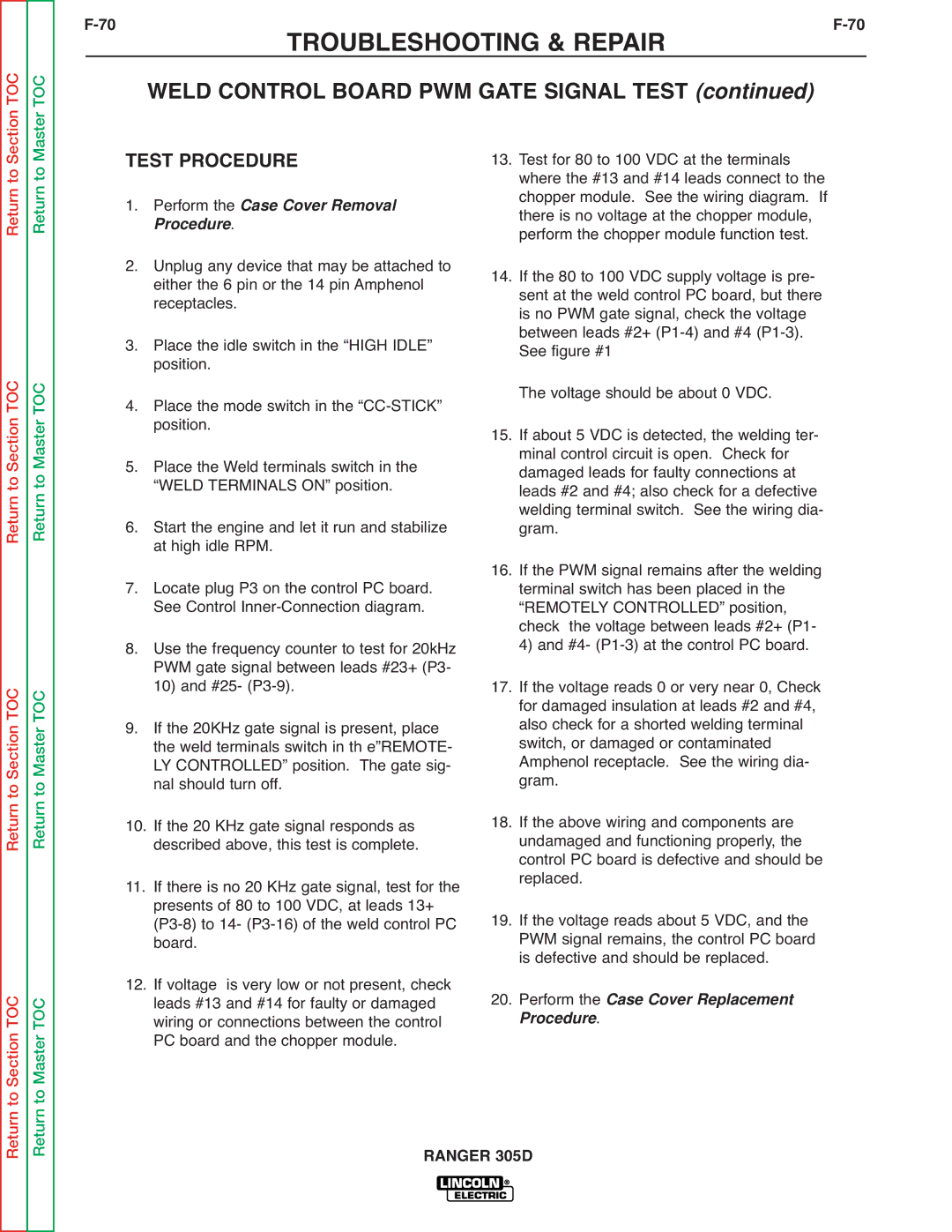
TOC
TOC
TROUBLESHOOTING & REPAIR | |||
|
| WELD CONTROL BOARD PWM GATE SIGNAL TEST (continued) |
|
Return to Section
Return to Section TOC
Return to Section TOC
to Section TOC
Return to Master
Return to Master TOC
Return to Master TOC
to Master TOC
TEST PROCEDURE
1. Perform the
. Case Cover Removal
Procedure
2.Unplug any device that may be attached to either the 6 pin or the 14 pin Amphenol receptacles.
3.Place the idle switch in the “HIGH IDLE” position.
4.Place the mode switch in the
5.Place the Weld terminals switch in the “WELD TERMINALS ON” position.
6.Start the engine and let it run and stabilize at high idle RPM.
7.Locate plug P3 on the control PC board. See Control
8.Use the frequency counter to test for 20kHz PWM gate signal between leads #23+ (P3- 10) and #25-
9.If the 20KHz gate signal is present, place the weld terminals switch in th e”REMOTE- LY CONTROLLED” position. The gate sig- nal should turn off.
10.If the 20 KHz gate signal responds as described above, this test is complete.
11.If there is no 20 KHz gate signal, test for the presents of 80 to 100 VDC, at leads 13+
12.If voltage is very low or not present, check leads #13 and #14 for faulty or damaged wiring or connections between the control PC board and the chopper module.
13. Test for 80 to 100 VDC at the terminals where the #13 and #14 leads connect to the chopper module. See the wiring diagram. If there is no voltage at the chopper module, perform the chopper module function test.
14. If the 80 to 100 VDC supply voltage is pre- sent at the weld control PC board, but there is no PWM gate signal, check the voltage between leads #2+
The voltage should be about 0 VDC.
15. If about 5 VDC is detected, the welding ter- minal control circuit is open. Check for damaged leads for faulty connections at leads #2 and #4; also check for a defective welding terminal switch. See the wiring dia- gram.
16. If the PWM signal remains after the welding terminal switch has been placed in the “REMOTELY CONTROLLED” position, check the voltage between leads #2+ (P1- 4) and #4-
17. If the voltage reads 0 or very near 0, Check for damaged insulation at leads #2 and #4, also check for a shorted welding terminal switch, or damaged or contaminated Amphenol receptacle. See the wiring dia- gram.
18. If the above wiring and components are undamaged and functioning properly, the control PC board is defective and should be replaced.
19. If the voltage reads about 5 VDC, and the PWM signal remains, the control PC board is defective and should be replaced.
20. Perform the
. Case Cover Replacement
Procedure
Return
Return
